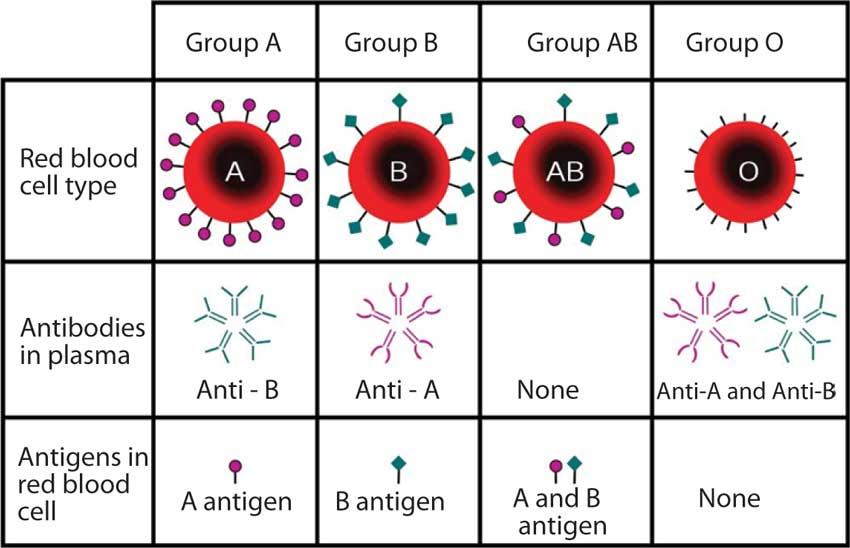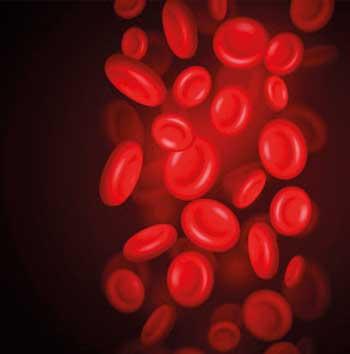29 May 2020 - {{hitsCtrl.values.hits}}

 Nowadays people are paying attention to their blood groups after finding that Chinese research article which is related to the novel pandemic called ‘COVID-19’. There are several factors which influence the occurrence of this virus. According to some research studies, our blood groups also play a vital role during infectious diseases. However, the combination of these factors should be involved to have an infection. Therefore, this week’s health capsule is dedicated to discussing the relationship between our blood groups and the individual’s susceptibility to the infection.
Nowadays people are paying attention to their blood groups after finding that Chinese research article which is related to the novel pandemic called ‘COVID-19’. There are several factors which influence the occurrence of this virus. According to some research studies, our blood groups also play a vital role during infectious diseases. However, the combination of these factors should be involved to have an infection. Therefore, this week’s health capsule is dedicated to discussing the relationship between our blood groups and the individual’s susceptibility to the infection.
What is an Infectious disease?
According to the WHO, an infectious disease is a disease which is caused by pathogenic microorganisms, such as bacteria, viruses, parasites or fungi. The diseases can be spread directly or indirectly from one person to another.
Types of infectious diseases
Bacterial infections
Bacteria is responsible for a broad variety of this type of infectious disease, from throat and urinary tract infections to meningitis and tuberculosis. Many skin rashes are also caused by bacteria.
Bone infections
An infection that affects a bone is known as ‘osteomyelitis’. It is most commonly caused by bacteria that enter the body through a deep wound or surgical incision.
Fungal infections
Fungi is responsible for a broad variety of fungal infections.
Joint infections
Bacterial joint inflammation, or bacterial/septic arthritis, most frequently affects the knee joint. Most cases are caused by the Bacterium Staphylococcus Aureus (Staph), although viral or fungal infections can also cause joint infections.
Tropical diseases
These types of infections are largely experienced by the poorest populations of the world. The most common tropical diseases include Elephantiasis (lymphatic filariasis), River blindness (onchocerciasis), Snail fever (schistosomiasis or bilharzia), and Trachoma.
Parasitic infections
Major parasitic infections are malaria, leishmaniasis, giardiasis etc. The majority of parasitic infections affect the tropical and subtropical countries.
Viral infections
Like bacteria, viruses can cause many different infectious diseases. The common cold develops from a virus, as does more complex diseases like the flu, mononucleosis, smallpox, HIV/AIDS, dengue, corona and H1N1 like infectious diseases.
| Environmental factors 1.Weather 2.Geography 3.Housing 4.Food 5.Air quality 6.Occupational setting Host Factors 1.Age 2.Sex 3.Genotype 4.Nutritional status 5.Behavior 6.Heath status Pathogenic factors 1.Infectivity- The ability of parasites to infect hosts 2.Pathogenicity- The ability of an infectious agent to cause disease 3.Virulence- A measurable characteristic of the ability of the microorganism to cause disease 4.Immunogenicity - The ability of a foreign substance to enter a host’s body and cause an immune response 5.Antigenic stability 6.Survival Most Vulnerable Groups for infections 1.Elderly people 2.Children 3.Pregnant women 4.Person who addicted to smoking and alcohol 5.Obese person 6.Adults with underlying chronic diseases (cardiovascular disease, diabetes, chronic lung diseases, cancer and high blood pressure) 7.Malnutrition people |
Factors that influence infections
There are three (03) major factors which affect the susceptibility of infectious diseases by the host such as environmental factors, host factors and Pathogenic factors. There is a good balance between these 03 factors. However, if this balance is disrupted, then there is a chance to contract an infectious disease since, these factors directly or indirectly effect the strength of host’s immune system and pathogens.
Relationship
ABO Serology
The ABO blood group consists of two antigens such as A and B antigens and four blood types including types A, B, AB, and O. The relative distribution of ABO types can vary among different ethnic populations, although group O tends to be the most common. In addition to red cells, AB antigens are widely expressed in many tissues and secretions, including intestinal mucosa, endothelium, kidney, heart, and other organs.
ABO is unique among all human blood groups in that it requires the typing of both red cells and plasma or serum. In general, the individual should possess antibodies against any missing A/B antigens. For example, a group O person possesses both anti-A and anti-B, whereas group AB, which expresses both antigens, is negative for ABO antibodies.
Many blood groups are receptors for toxins, parasites, and bacteria where they can facilitate colonisation or invasion or evade host clearance mechanisms. Moreover, blood groups can serve as false receptors and prevent the binding to target tissue. Therefore, ABO antibodies can be considered as a part of the innate immune system against some bacterial pathogens and enveloped viruses that carry
ABO-active antigens.
According to research studies, different kinds of blood groups have behaved in various ways for diverse types of infections. For example, blood group AB is associated with increased risk for severe dengue disease in secondary infections while in malaria infection, Individuals with blood group “A” have high susceptibility to falciparum malaria and blood group “O” protects against complicated cases.
With regard to the COVID-19 infection, people with blood group “A” have a potentially higher risk while blood group “O” has a lower risk of contracting the infection.
There are several factors which play significant roles in protecting us from infectious diseases. Among those factors, blood group antigens also act in a specific way to control infections. As mentioned above, all of these factors act as a team in order to prevent the infection by balancing all 03 main factors which affect to occurrence of infectious diseases. However, if this balance among host, pathogen and environmental factors disrupt, that is responsible for increased susceptibility to infections. The writer is a former medical laboratory technologist at a private hospital and holds a MSc. Degree in Industrial and Environmental Chemistry from the University of Kelaniya and possesses a BSc in Food Production and Technology Management from the Wayamba University of Sri Lanka.
21 Dec 2024 5 hours ago
21 Dec 2024 7 hours ago
21 Dec 2024 21 Dec 2024
21 Dec 2024 21 Dec 2024
21 Dec 2024 21 Dec 2024